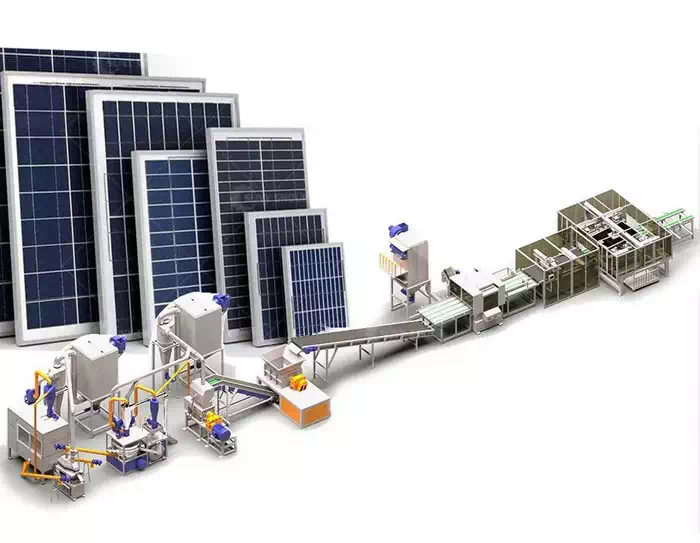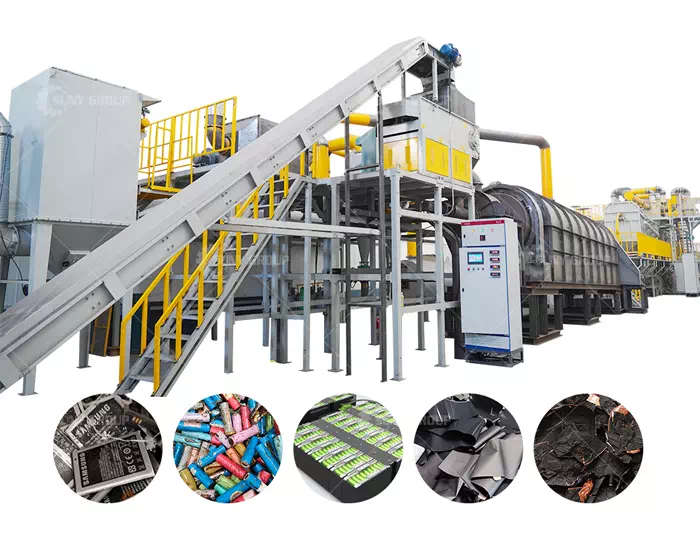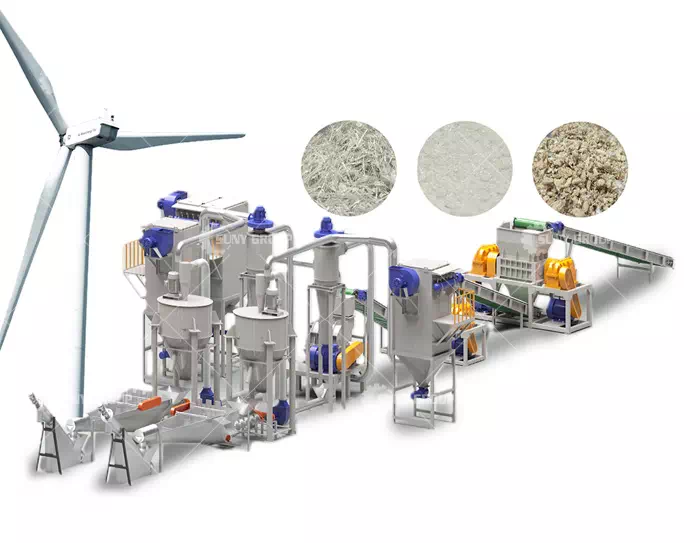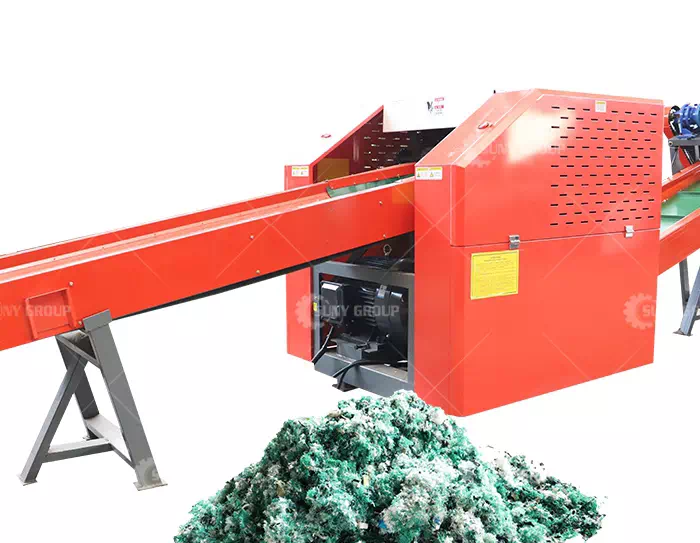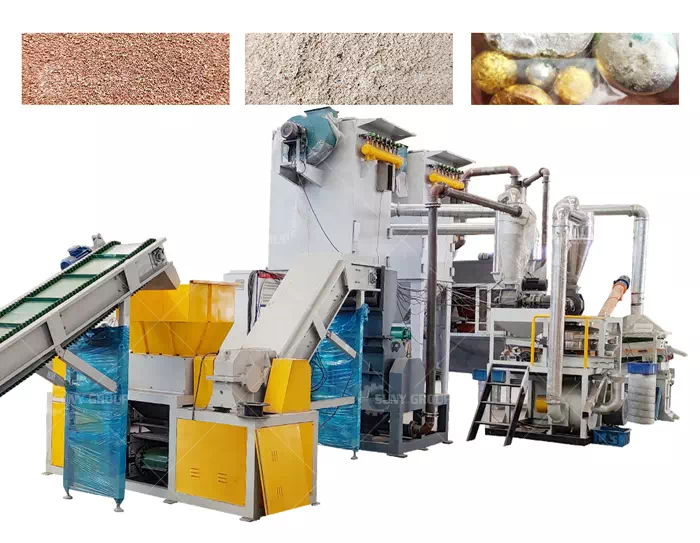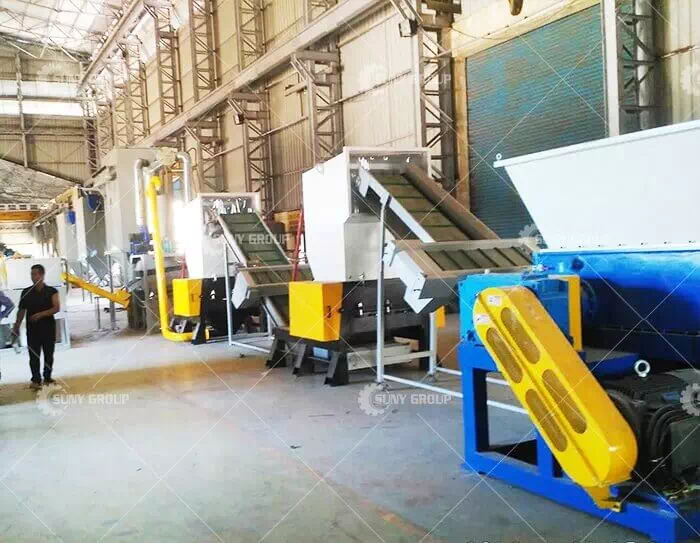Who manufactures lithium battery recycling machines?
Lithium-ion battery recycling is a critical environmental task as the number of used lithium-ion batteries continues to grow with the popularity of electronics such as electric vehicles and wearable devices. An effective recycling program can reduce the demand for limited resources while minimizing the impact on the environment. As a professional manufacturer of lithium battery recycling equipment, the following is a detailed introduction of SUNY GROUP's lithium-ion battery recycling solutions and related equipment:
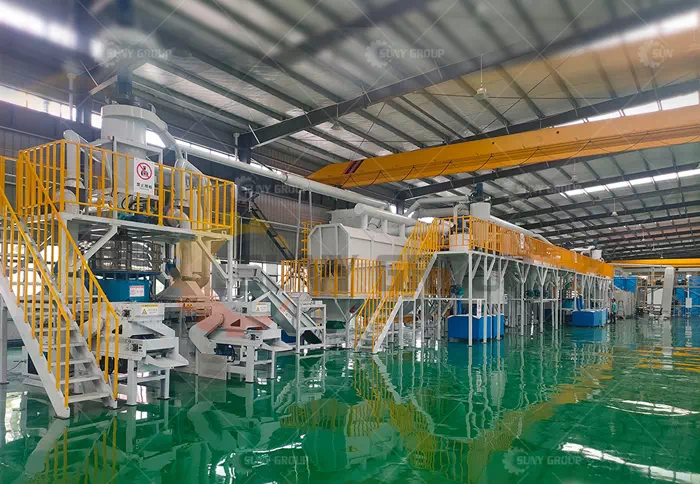
Lithium battery recycling machines
Waste Battery Collection: The first step in lithium-ion battery recycling is to collect waste batteries. This includes collecting used batteries from sources such as discarded electronic equipment, electric vehicles, tools, and so on. Establishing an effective recycling network, including recycling bins, recycling points and recycling centers, helps to ensure timely recycling and disposal of used batteries.
Classification and Sorting: Collected used batteries need to be classified and sorted for further processing. Different types of lithium-ion batteries may have different chemical compositions and structures, so they need to be sorted according to type and specifications. Automated sorting equipment such as X-ray detectors and optical identification systems can be used to efficiently sort different types of batteries.
Physical Processing: After sorting and separation, used lithium-ion batteries are typically sent to physical processing equipment for crushing and shredding. Mechanical crushing equipment such as shredders and hammer crushers are used to break down the battery casing and internal components into smaller pieces for further processing.
Metal Recovery: Valuable materials extracted through chemical-physical sorting (e.g., electrostatic sorting equipment, continuous carbonization ovens, etc.) processing require further metal recovery. This includes the purification and refining of lithium, cobalt, nickel and other metals for reuse. Metal recovery equipment includes electrolyzers, refineries and filters.
Waste treatment: Waste and by-products generated during the treatment of used batteries require safe treatment and disposal. This includes the treatment of acid and alkali waste liquids, organic solvents, solid waste and wastewater. Waste treatment equipment includes waste liquid treatment systems, exhaust gas treatment devices and wastewater treatment equipment.
Environmental Protection Measures: The lithium-ion battery recycling process requires a range of environmental protection measures to ensure workplace safety and environmental sustainability. These include emission controls, wastewater treatment, exhaust gas treatment, safety equipment and protective measures.
Overall, lithium-ion battery recycling solutions involve a number of steps and technologies, ranging from the collection and sorting of used batteries through physical and chemical treatment to metal recovery and waste disposal. Relevant equipment includes physical treatment equipment, chemical treatment equipment, metal recovery equipment and waste treatment equipment, which together form a complete lithium-ion battery recycling system. Through effective recycling programs, we can maximize the use of valuable resources in used batteries and help customers design and manufacture lithium battery recycling programs and related equipment.
Recommend products
CONTACT US:
If you have any requirement or suggestion, please fill in the form and send to us, thanks!E-mail:sunymachine@gmail.com | Whatsapp:+8613674945231


